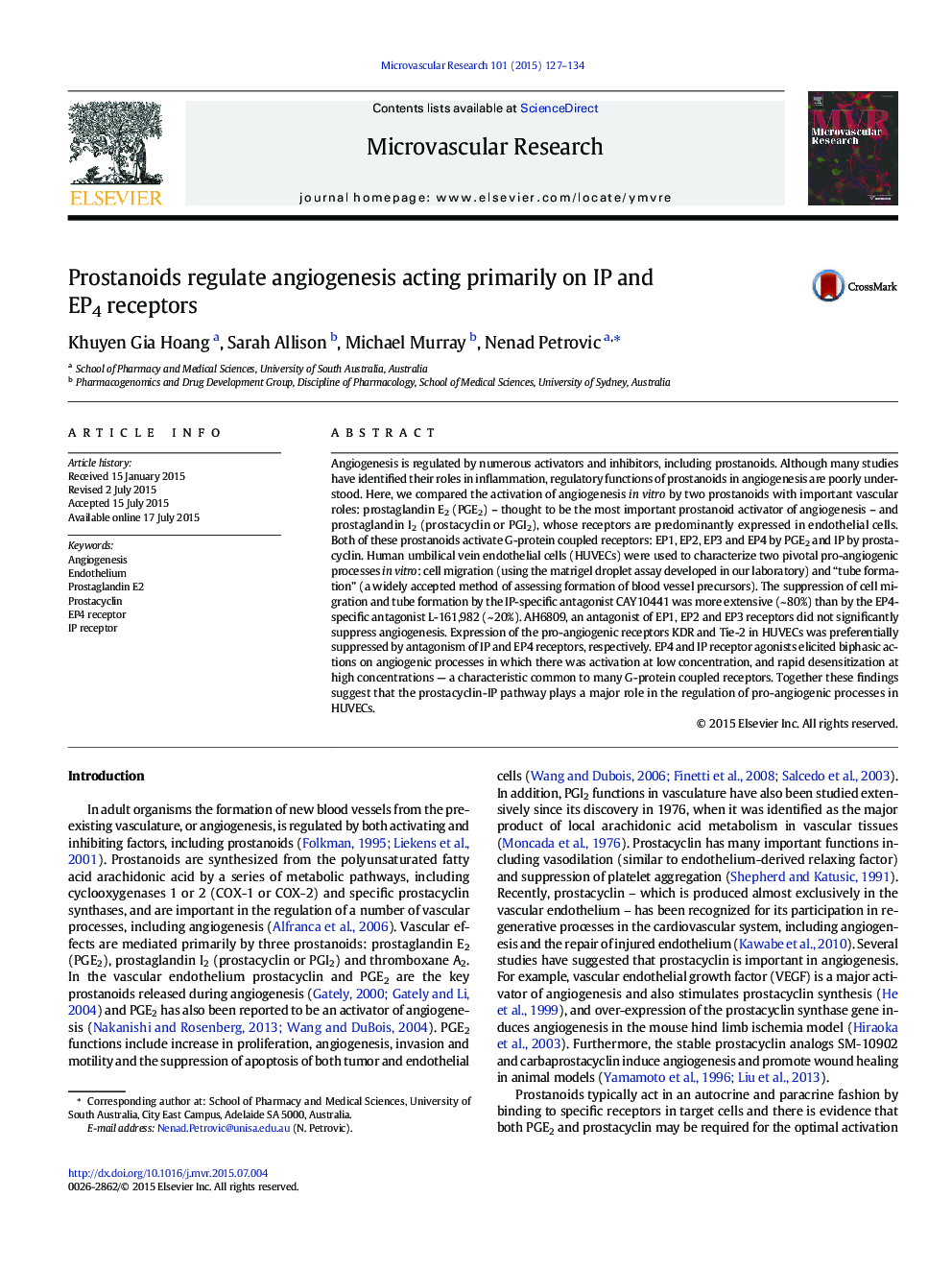| کد مقاله | کد نشریه | سال انتشار | مقاله انگلیسی | نسخه تمام متن |
|---|---|---|---|---|
| 8341160 | 1541283 | 2015 | 8 صفحه PDF | دانلود رایگان |
عنوان انگلیسی مقاله ISI
Prostanoids regulate angiogenesis acting primarily on IP and EP4 receptors
دانلود مقاله + سفارش ترجمه
دانلود مقاله ISI انگلیسی
رایگان برای ایرانیان
کلمات کلیدی
موضوعات مرتبط
علوم زیستی و بیوفناوری
بیوشیمی، ژنتیک و زیست شناسی مولکولی
زیست شیمی
پیش نمایش صفحه اول مقاله

چکیده انگلیسی
Angiogenesis is regulated by numerous activators and inhibitors, including prostanoids. Although many studies have identified their roles in inflammation, regulatory functions of prostanoids in angiogenesis are poorly understood. Here, we compared the activation of angiogenesis in vitro by two prostanoids with important vascular roles: prostaglandin E2 (PGE2) - thought to be the most important prostanoid activator of angiogenesis - and prostaglandin I2 (prostacyclin or PGI2), whose receptors are predominantly expressed in endothelial cells. Both of these prostanoids activate G-protein coupled receptors: EP1, EP2, EP3 and EP4 by PGE2 and IP by prostacyclin. Human umbilical vein endothelial cells (HUVECs) were used to characterize two pivotal pro-angiogenic processes in vitro: cell migration (using the matrigel droplet assay developed in our laboratory) and “tube formation” (a widely accepted method of assessing formation of blood vessel precursors). The suppression of cell migration and tube formation by the IP-specific antagonist CAY10441 was more extensive (~Â 80%) than by the EP4-specific antagonist L-161,982 (~Â 20%). AH6809, an antagonist of EP1, EP2 and EP3 receptors did not significantly suppress angiogenesis. Expression of the pro-angiogenic receptors KDR and Tie-2 in HUVECs was preferentially suppressed by antagonism of IP and EP4 receptors, respectively. EP4 and IP receptor agonists elicited biphasic actions on angiogenic processes in which there was activation at low concentration, and rapid desensitization at high concentrations - a characteristic common to many G-protein coupled receptors. Together these findings suggest that the prostacyclin-IP pathway plays a major role in the regulation of pro-angiogenic processes in HUVECs.
ناشر
Database: Elsevier - ScienceDirect (ساینس دایرکت)
Journal: Microvascular Research - Volume 101, September 2015, Pages 127-134
Journal: Microvascular Research - Volume 101, September 2015, Pages 127-134
نویسندگان
Khuyen Gia Hoang, Sarah Allison, Michael Murray, Nenad Petrovic,